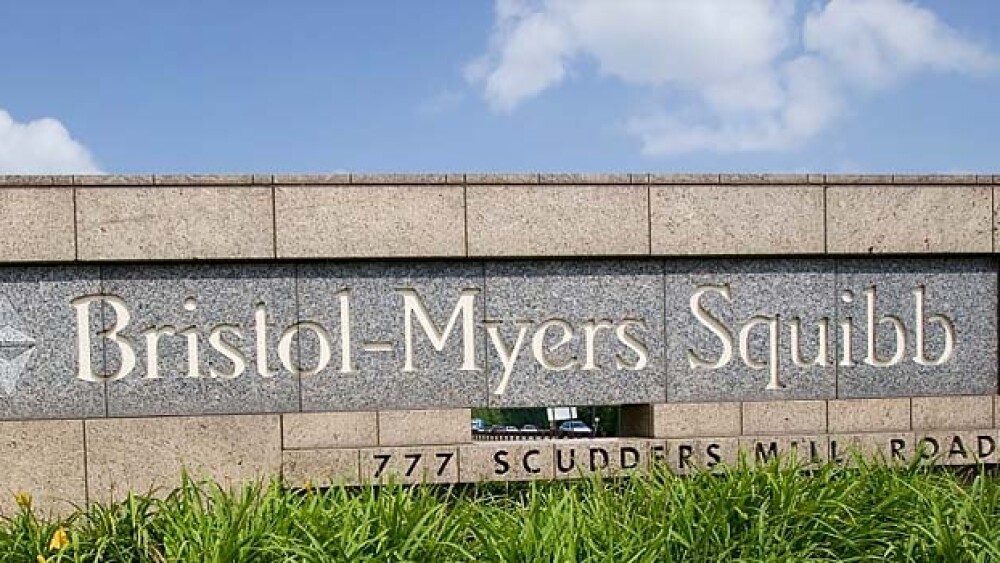Thomas Lynch Jr., Bristol-Myers’ chief scientific officer, will leave the company in October. Later-stage development will be managed by Samit Hirawat, the incoming chief medical officer.
In April, Bristol-Myers Squibb’s shareholders voted to approve the acquisition of Celgene for about $74 billion. The deal was originally announced on January 3, 2019.
Today, the company announced its leadership team for the combined company. Thomas Lynch Jr., Bristol-Myers’ chief scientific officer, will leave the company in October. Part of Lynch’s responsibilities will be taken over by Rupert Vessey, a Celgene research executive. Vessey will manage the combined company’s drug discovery and early clinical testing, as well as look for possible new drugs to add to the company’s pipeline.
Later-stage development will be managed by Samit Hirawat, the incoming chief medical officer. Previously, Hirawat led cancer development at Novartis.
Bristol-Myers’ commercial activities will be shared by executives reporting to chief executive officer Giovanni Caforio. Nadim Ahmed will oversee the merged company’s hematological oncology business. Nadim is from Celgene. Chris Boerner, presently Bristol-Myers’ chief commercial officer, will handle the rest of the commercial business, including cancer, immunology and cardiology.
Celgene’s chief financial officer, David Elkins, will take on the same role for the merged companies, replacing Charles Bancroft, who will retire in 2020.
Caforio stated, “I would like to thank Charlie for his extraordinary contributions during his 10 years as chief financial officer and for his partnership and support. Charlie has played a significant leadership role in driving our company strategy, leading our transformation and executing important business development activities, including the acquisition of Celgene. I appreciate Charlie’s commitment to lead the integration to help make this combination a reality.”
The company indicates that this restructuring is “to drive the continued growth of a highly successful marketed portfolio, maximizing the six near-term launch opportunities and deliver the value of the combined pipeline, all guided by its continued mission of serving patients with serious disease. The business will be supported by a lean infrastructure to enable efficiency and agility.”
The merged company will have nine $1 billion-plus products on the market and six near-term launch compounds in the pipeline. Its four global franchises will be Oncology, Hematology, Immunology and Cardiovascular.
The merger was not without its drama and critics. One of its biggest shareholders, Wellington Management Company LLP, objected to the acquisition. Wellington owns about an 8% stake in Bristol-Myers. Another BMS shareholder, Starboard Value, also opposed the deal. Starboard has about a 1% stake. In an open letter, Starboard called the deal “poorly conceived and ill-advised.” Another group, Dodge & Cox, also opposed the deal. Dodge & Cox has a 2% stake.
Bristol-Myers and Celgene then went on something of a sales campaign to convince shareholders of the rationale and benefit of the merger.
About 70% of shareholders voted in favor of the deal, with about 98% taking part in the vote.
Much of the criticism of the deal revolved around the patent cliff for Celgene’s multiple myeloma drug Revlimid. The first generic is expected in March 2022. The shareholder criticism argued that Bristol-Myers was buying a company that was going to soon have a much lower revenue because of the drug’s generic competition. Celgene and Bristol-Myers Squibb argued that they have a very promising pipeline with three drugs, fedratinib, ozanimod, and luspatercept already submitted to the U.S. Food and Drug Administration (FDA) and two promising CAR-T immuno-oncology drugs, bb2121 and liso-cel, in late-stage clinical trials.





